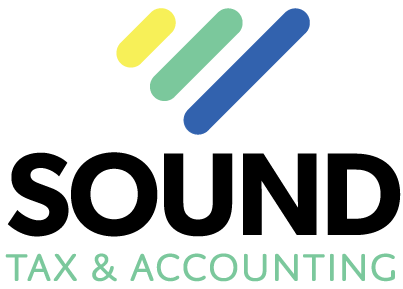CARES Act Program Updates
Small Business CARES Loans/Grants Update
Sound Tax & Accounting has spent the last week working with our small business partners, gathering payroll data, running reports and assisting with applications for various CARES Act programs. We know the current crisis is leaving small business owners wracked with uncertainty and we are grateful to be able to provide continued support to our clients. We wanted to reach out with some updates on a few CARES Act programs, to keep you informed and hopefully clear up a few misconceptions
Paycheck Protection Program Updates
As of Friday, April 10, 2020, the SBA has approved 587,000 Paycheck Protection Program loans for a total of $151 billion. As you no doubt have heard, banks are having a tough time processing the applications expediently. A few banks have even stopped accepting applications altogether. Once applications are approved, banks have 10 days to disburse funds and some banks are having trouble with that deadline. If you are waiting for a decision from your bank on your application and/or have been approved and are waiting for funds, be sure to have a Plan B in case your application is denied or funding is delayed.
A new FAQ sheet released by the SBA and Department of the Treasury has cleared up a few gray areas:
Funds approved via the PPP are to be used to cover payroll and payroll expenses for the 8 weeks following the final disbursement, not for payroll expenses that precede the initial release of funds
The language of the program allows banks to request either a look back period of 12 months from the date of application OR 2019’s payroll expenses. Even if you are using the previous 12 months as your lookback for calculation, the lender may still request all of 2019’s federal payroll tax returns and W3/W2s.
A seasonal employer is permitted to use a shorter look back period of February 15 or March 1, 2019 – June 30, 2019. If they were not in business during that period, they can use the look back period of January 01, 2020 – February 29, 2020.
The exclusion of payroll expenses above $100,000 per year applies only to cash compensation, not to non-cash benefits such as employer paid retirement contributions, employer paid health insurance premiums or employer paid state and local taxes on employee compensation
The employer’s portion of federal taxes (Social Security and Medicare) are not to be factored when calculating payroll costs
The FAQ Sheet can be found in its entirety here.
Economic Injury Disaster Loan
To date the SBA has received nearly 4 million EIDL applications requesting almost $400 billion. Through the CARES Act, the EIDL loan program was capped at $10 billion in loans. As of Friday, April 10, the SBA had funded 24,000 loans. The $10,000 upfront grant (that you could request while you waited for your application to be processed) has now been reduced to a grant of $1,000 per employee. At this time, funding from an Economic Injury Disaster Loan looks to be pretty far-off. If you have applied for an EIDL and are worried you may not receive funding, either timely or at all, please reach out for some financial planning and other options for your small business.
To stay up to date on the latest news and resources, please visit Sound Tax & Accounting’s Covid-19 Resources Page.
